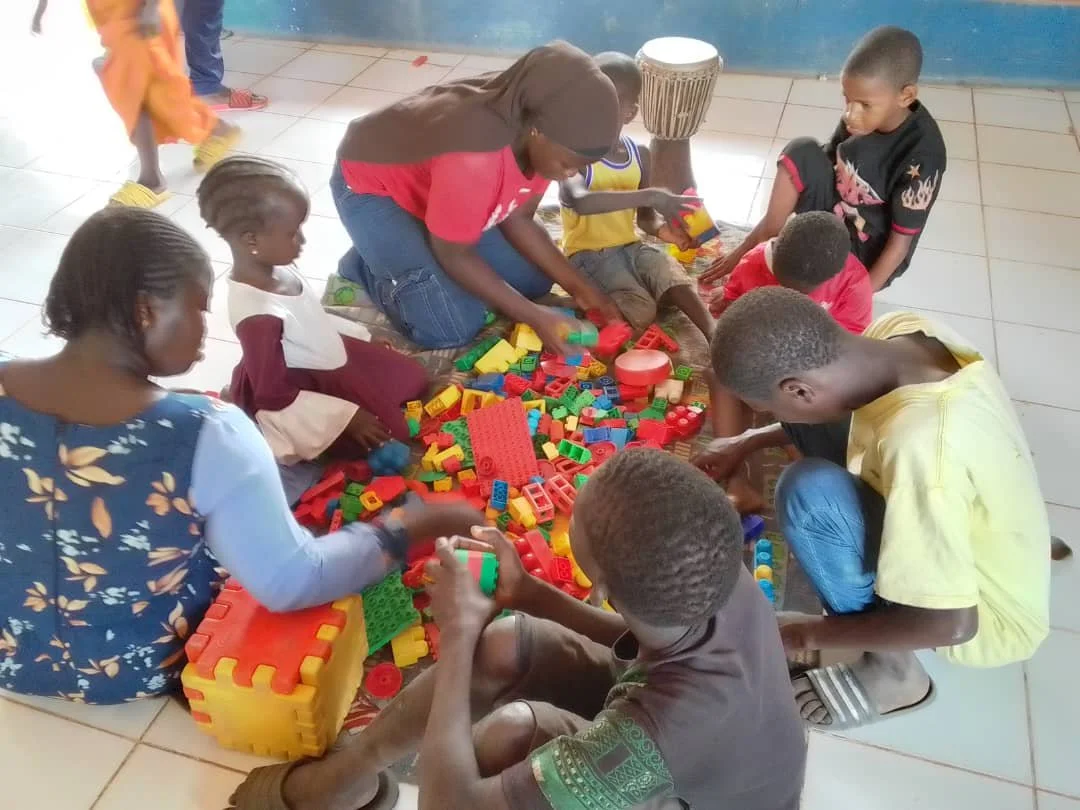When we tell interested parties that Disability Africa has developed a model that ends isolation, improves wellbeing, enhances education and social development and provides healthcare access for disabled children across Africa, we see ears prick up with excitement. And yet when it is revealed that our model is based around play, some individuals appear to lose interest. “Inclusive development must be achieved through formal education and vocational training…!”, you can hear them think. “How can something as simple and juvenile as “play” solve the complex issues facing disabled children in low-income communities?!”
And yet, for decades NGO’S have been attempting to push disabled children into overcrowded, inflexible and under resourced schooling, without any clear beneficial outcomes. In “western” countries, interactive and guided play is unanimously assumed an important element to early childhood development, and yet this is something often disregarded in low-income contexts across African countries, where onus is put on income generating activity and formal education. For all children worldwide, the importance of developing the foundations to learn and navigate the world is universal. Why would this be any different for a disabled child living in an African country?
At Disability Africa, we often celebrate the power of play as a tool to bringing disabled children out of isolation and promoting inclusion, and yet beyond this, the essential importance of play for children’s cognitive development is irrefutable. In the last two decades, evidence has emerged across neuroscience, psychology and education studies to reaffirm the importance of play in childhood development. Here’s why:
Play is an essential ingredient for healthy brain development: A 2016 study from CDC at Havard University showed that, in order to build healthy brain connections from the outset, young children need responsive and rich social interactions with caregivers. Isolated disabled children are often deprived from such interactions, as they are unable to engage in independent spontaneous play. Play offers a unique context for these supportive and rich learning experiences in early childhood. Studies that follow extreme cases where infants were raised in deplorable conditions (Bos, Fox, Zeanah, & Nelson, 2009) or experimental manipulations where mammals were raised without play (Spinka, Newberry, & Bekoff, 2001) have shown that play is not simply a ‘bonus’, but a necessity for healthy brain development.
Play teaches you how to learn: Attaining key content and facts is important for school and life, but children also need a deep, conceptual understanding that allows them to connect concepts and skills, apply their knowledge to different situations, and spark new ideas (Winthrop & McGivney, 2016; Frey, Fisher, & Hattie, 2016). Playful experiences are optimal for engaging in this type of deeper learning. So, by attending our playschemes, children learn how to learn and respond to situations in a creative and innovating way.
Taking these learnings into account, we can infer that when a child is deprived of the opportunity to play, their chance of any natural development is extremely limited. A report from the American Academy of Pediatrics highlights that children living in poverty frequently lack access to safe, playful experiences, which hinders their development (Milteer, Ginsburg, The Council on Communication and Media, & Committee on Psychosocial Aspects of Child and Family Health, 2012). Many of the disabled children we engage with are kept at home, with little social interaction. Within a nurturing, playful environment where play is guided and encouraged, children can develop far beyond the initial expectations of their caregivers. The right to play is therefore an essential building block of healthy development, and cannnot be overlooked.



